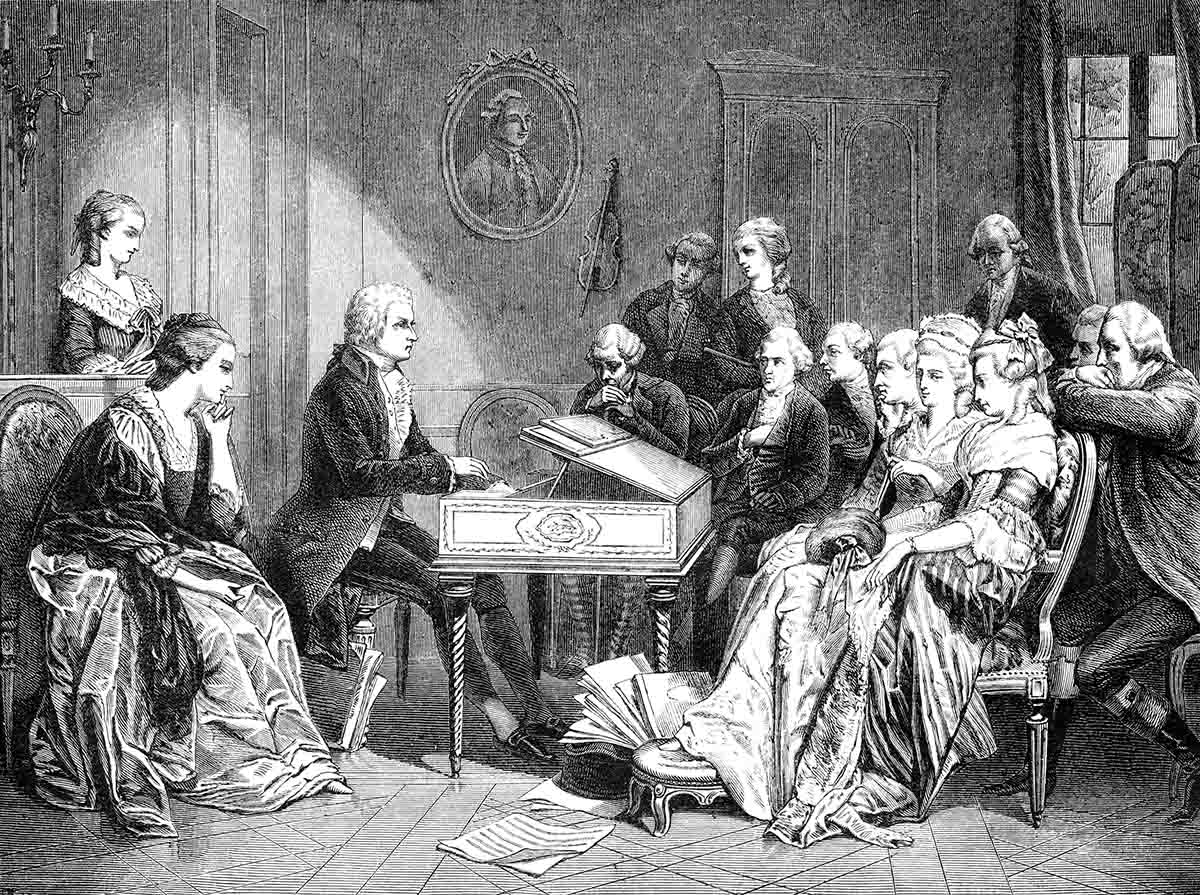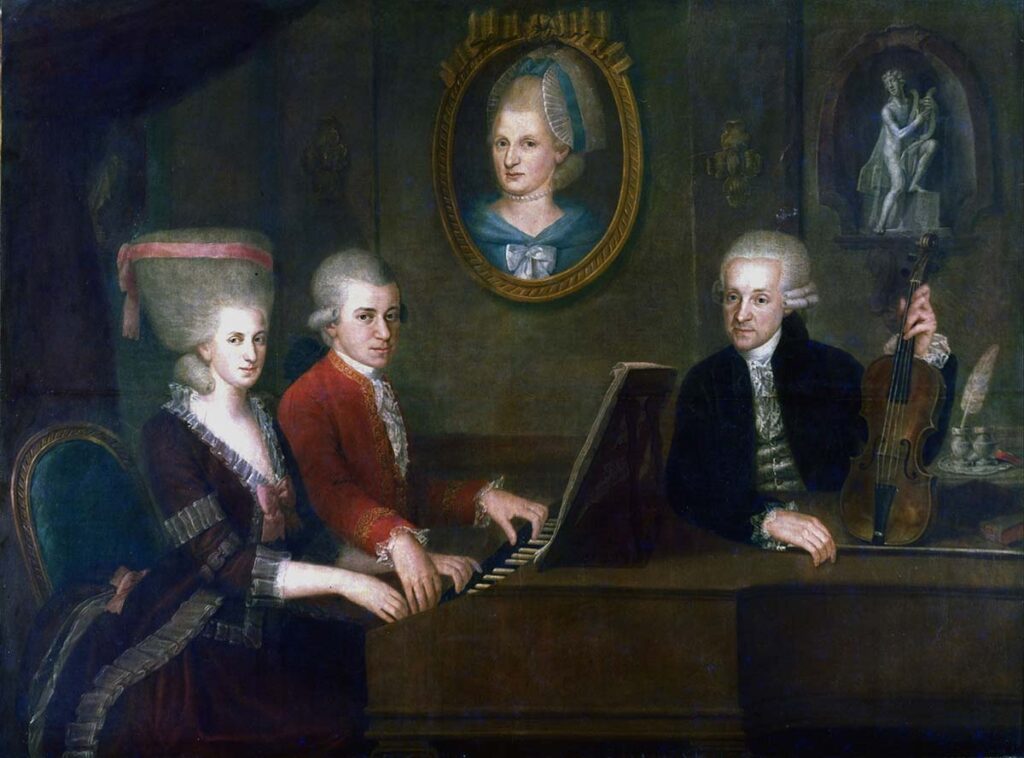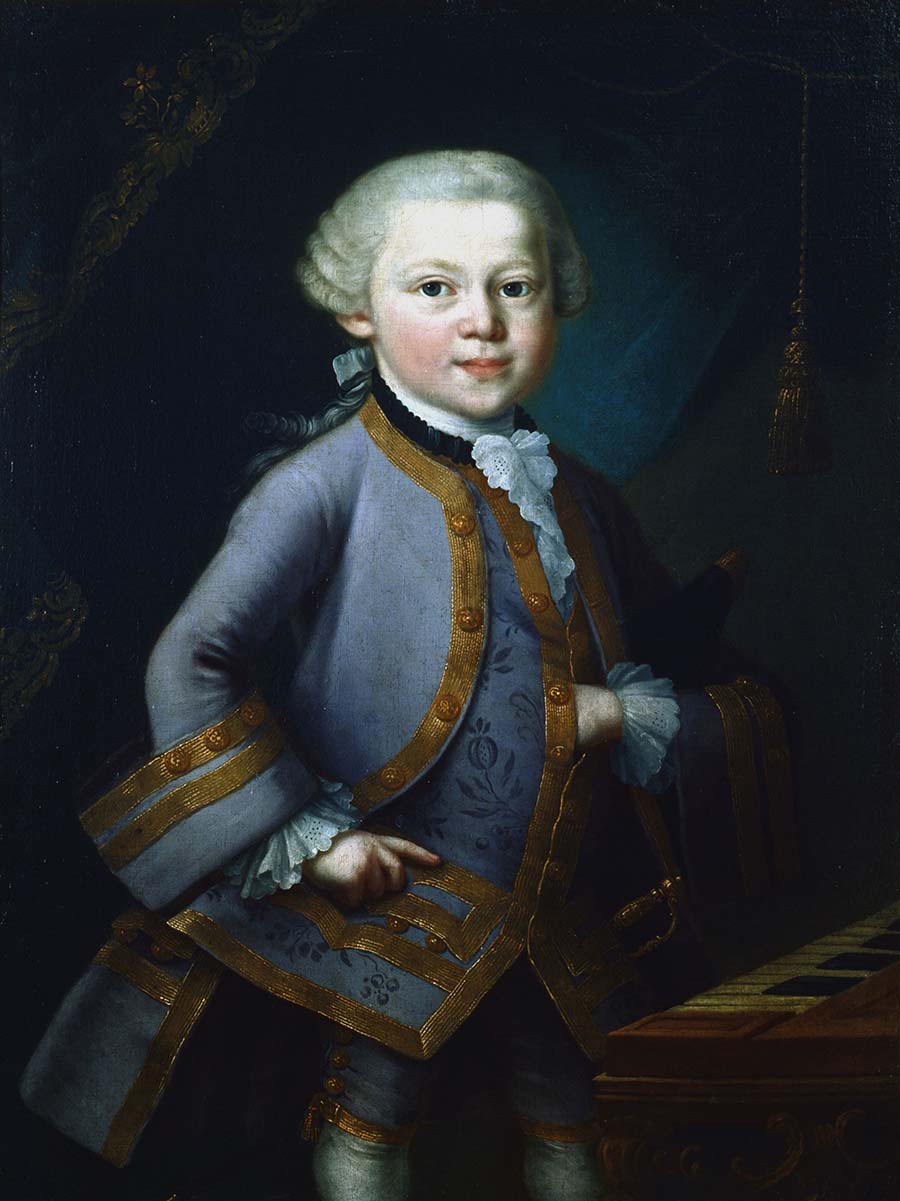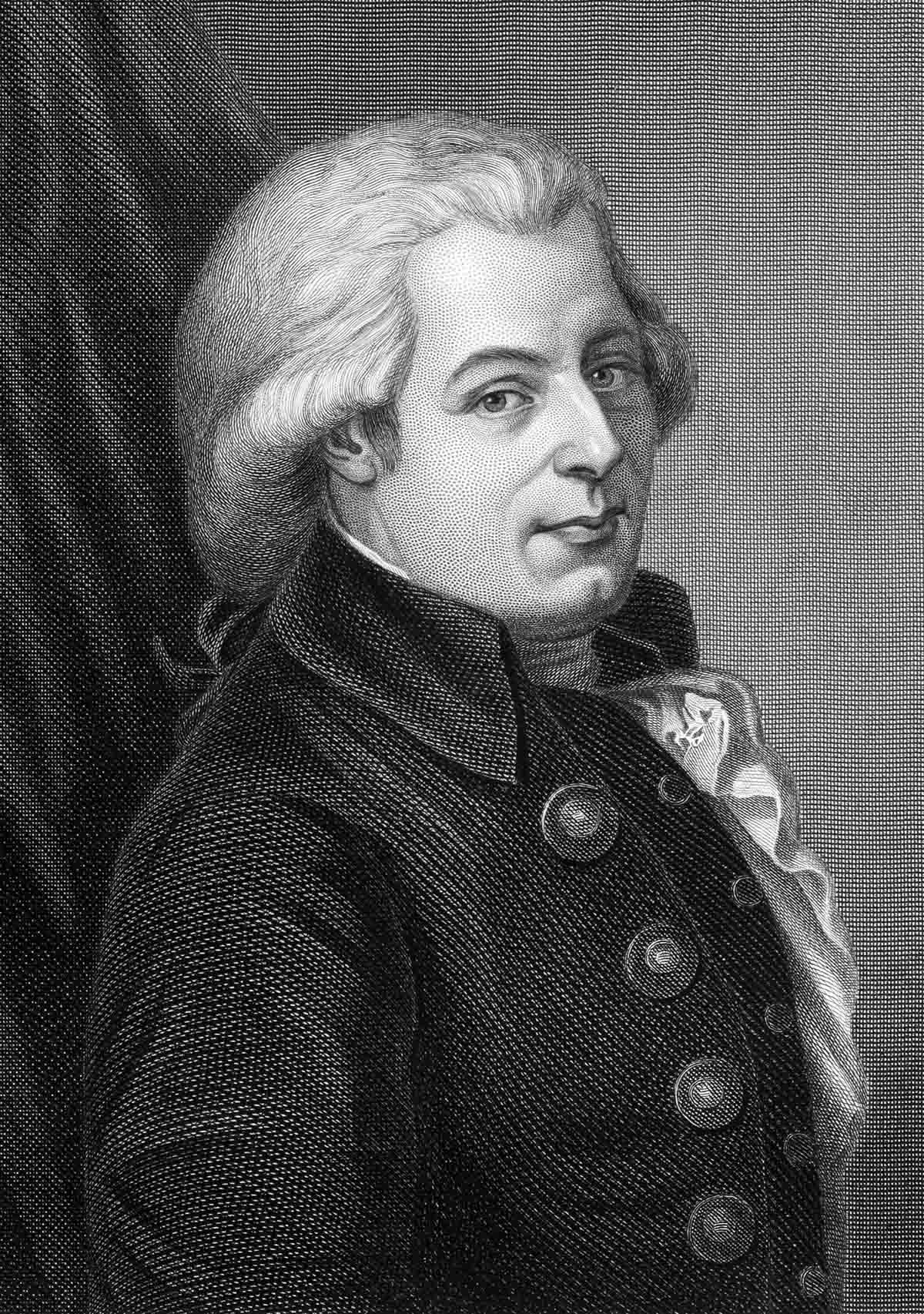

The world knows Mozart as a prodigy, renowned composer, and master of instruments. He was the creator of many incredible symphonies and a true musical genius. Centuries after his death, Mozart remains a household name. He’s mentioned without fail in any discussion about classical music. His legacy is powerful. So, it makes sense to wonder: what was his life really like?
Wolfgang Amadeus Mozart was born in Salzburg, Austria in 1756. He was the youngest of seven and was the only surviving son of parents, Anna Maria and Leopold Mozart.
Mozart’s father was a minor composer and the deputy of a prestigious violin orchestra. Leopold was also a teacher who provided all his children with music lessons from a young age.
Mozart spent hours every day at the piano. He learned to play complex pieces from his talented father. Mozart proved to be a natural talent for piano, viola, organ, harpsichord, and violin.
Although it was an alteration of others’ work, Mozart wrote his first concerto at the young age of 11. He wrote his first original concerto at 17 years old.

When Leopold noticed his son’s considerable talent, he began to tour his family around the royal courts and cities of Europe. Mozart’s sister, Maria Anna (her family nickname was Nanneri) was also a part of the musical family act. Mozart and Maria Anna were both considered child prodigies. They were a popular act and toured from 1763 to 1766. They traveled to the courts of Munich, Paris, London, and Amsterdam.
Fun Fact: When he was just six years old, Mozart met a young Marie Antoinette. He proposed marriage to her as soon as she helped him up from the floor where he had slipped.
After their tour of Europe, Mozart and his father left for Italy in 1769. This time, they left Maria Anna back home in Austria to marry. During their time in Italy, Mozart was accepted as a member of the Accademia Filarmonica, a music institution in Bologna, Italy.

Mozart continued to hone his craft throughout young adulthood. He gained recognition for his masterpieces that became well known for their vivid emotion and musical texture.
Returning home to Austria in 1773, Mozart then became employed as a court musician for the ruler of Salzburg. He had some difficult years while in Salzburg and then in Paris due to the death of his mother. Mozart decided to move to Vienna at the end of 1781.

Mozart’s musical compositions spanned across many genres. He wrote concertos, operas, sonatas, quartets, and more. But it wasn’t until his move to Vienna that his career began to take off.
It was in Vienna that Mozart acquired his famous pianoforte in 1782, signed by the piano maker Anton Walter. According to musicologist Stanley Sadie, Mozart established himself as “the finest keyboard player ever in Vienna.”
In 1782, Mozart also completed his opera ‘The Abduction from the Seraglio‘. It achieved massive commercial success throughout Europe and cemented his reputation.
To the delight of audiences, in 1786 Mozart collaborated with Lorenzo da Ponte. They wrote ‘The Marriage of Figaro‘ and later ‘Don Giovanni‘. Mozart was so well-loved that Emperor Joseph II appointed him as his “chamber composer” to prevent Mozart from leaving Vienna.
Deciding to settle in Vienna as a freelance composer and performer, Mozart moved into a lodge owned by the Weber family. It was there that Mozart met his wife, Constance Weber, and the two were married in the summer of 1782.
After his marriage, Mozart and his wife decided to settle in Vienna their permanent home. The couple had six children but only two survived infancy.
During his final years, Mozart had a burst of productivity and created a great deal of work. He composed some of his most influential creations. This included his opera, The Magic Flute, his final piano concerto, and his renowned Clarinet Concerto.
While in Prague for the premiere of his opera, La Clemenza di Tito, Mozart fell ill. Mozart died in his home with his wife, Constance in December of 1791. By the time that he passed, he had written over 600 pieces of music over the course of his life.
Almost 300 years later, we still consider Wolfgang Mozart to be the greatest composer and musical mastermind that ever lived. His music endures because it was made with such incredible emotion and energy. As you listen to each of his soul-touching symphonies, you can hear the passion. That is the reason his legacy has lived on for centuries.
If you’re interested in learning to play compositions by Mozart, contact us! We are NJ’s number one choice for online and in-person music lessons.